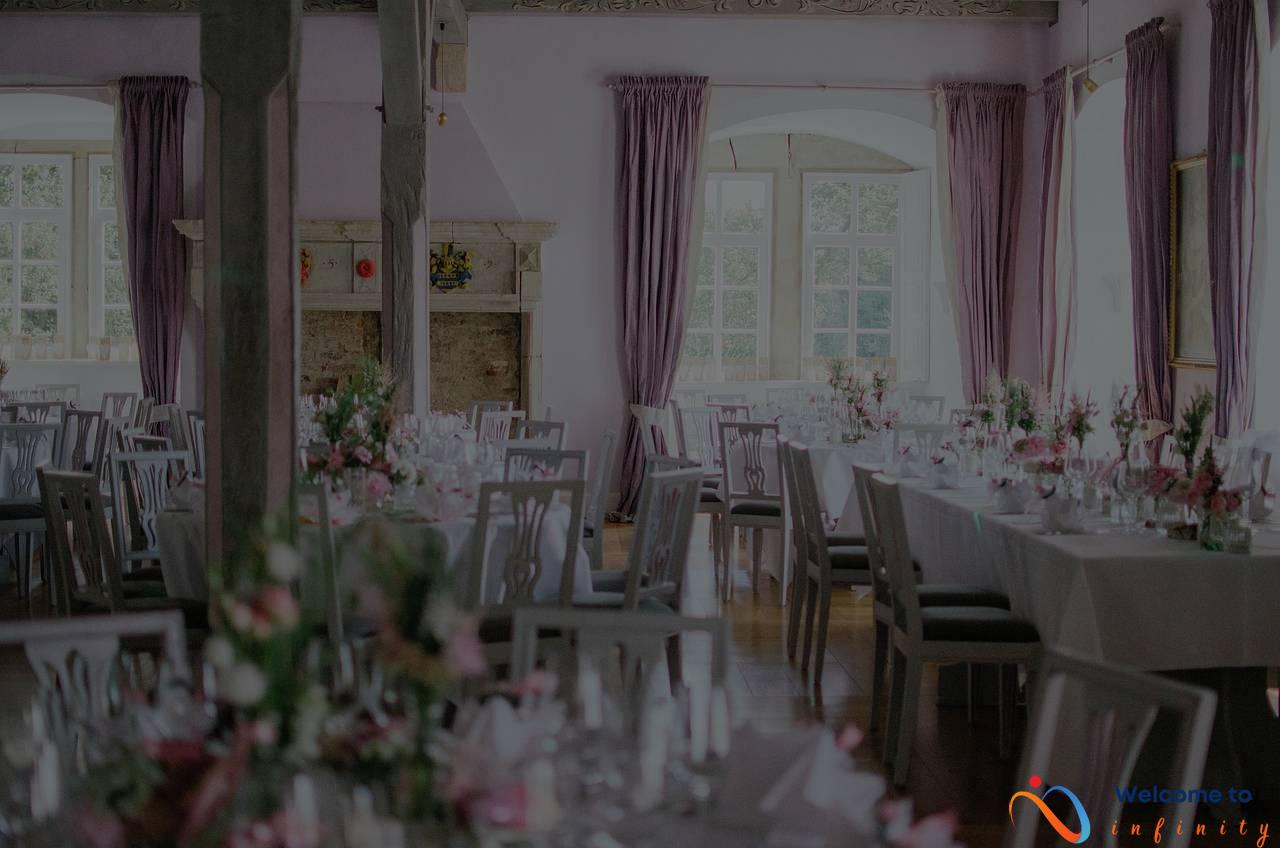If you're planning a destination wedding, Europe is a great option. With its breathtaking scenery and unique cultural experiences, Europe offers many romantic and unforgettable locations for your special day. However, planning a destination wedding in Europe can be challenging.
To plan the perfect wedding in Europe, you need to choose the right location that suits your preferences and budget. Consider factors like the season, accessibility, and cultural experiences to choose the perfect spot. For instance, if you're dreaming of a beach wedding, you could choose Greece, Spain, or Italy as your destination.
Researching local legal requirements is also crucial when planning a destination wedding in Europe. Different countries have varying legal requirements for marriage, and you don't want to end up facing any legal hassles. Therefore, make sure to do your research and gather all the necessary documents to avoid any unpleasant surprises.
If you're not familiar with the culture and language of your chosen destination, consider hiring a local wedding planner. A skilled and experienced wedding planner can take care of all the details and make your wedding day stress-free. They can also help you handle cultural differences and language barriers, ensuring that your wedding is a memorable experience for you and your guests.
- Additionally, don't forget to make suitable travel and accommodation arrangements for your guests. Choose accommodations located close to the wedding venue and consider factors like transportation and accessibility when booking.
- Managing your budget is also crucial when planning a destination wedding. Determine your budget early on and plan accordingly. Consider factors like currency exchange rates and local vendor costs to avoid any unexpected expenses.
- Finally, plan for the unexpected and have a backup plan in case things don't go as planned. For example, if the weather changes suddenly, have an indoor venue or a tent ready. Being prepared for unforeseen circumstances can help you avoid any last-minute stress and ensure that your wedding day runs smoothly.
Planning a destination wedding in Europe requires meticulous planning and attention to detail. By following these tips and hiring a professional wedding planner, you can make your dream wedding a reality and have a magical experience that you'll treasure for the rest of your life.
Choose the right location
Choosing the right location for your destination wedding in Europe is a crucial decision that can make or break your special day. You should consider various factors while finalizing the location to ensure that it aligns with your vision for a perfect wedding.
- Season: The time of year you are planning to tie the knot is an important factor to consider while choosing a location. Europe has diverse weather conditions throughout the year, and you want to ensure that your wedding is during a season when the climate is pleasant and predictable.
- Accessibility: The location you choose should be easily accessible for your guests. Consider transportation options and ensure that the venue is within a reasonable distance from the airport and accommodation facilities.
- Cultural experiences: Europe offers a diverse range of cultural experiences, and you might want to incorporate some local traditions and customs into your wedding ceremony. Research the location and determine if it aligns with the overall theme and vision for your wedding.
By considering these factors, you can choose the perfect location that will create a memorable and picturesque backdrop for your special day. Additionally, hiring a local wedding planner can help you choose a location that aligns with your preferences and vision while taking care of any logistical or language barriers.
Research local legal requirements
Getting married in a foreign country can be an exciting and daunting task at the same time. One of the most important things to consider is the local legal requirements for marriage in the country you have chosen. Every country in Europe has different laws and regulations regarding marriage.
The first step is to research the legal requirements for marriage in your chosen country. Some countries require residency before getting married, while others require blood tests or a waiting period. Check what documents you need to have in order, such as passports, birth certificates, divorce decrees, and proof of legal capacity to marry.
It is essential to ensure that you have all the necessary documents before you leave for your destination wedding. Not having the right paperwork in order can lead to unexpected legal troubles, which can be stressful and costly. You can consult with the embassy or consul of your chosen country for more information on the legal requirements for marriage.
You may need to translate your documents into the local language and have them authenticated to be accepted in the destination country. Some countries may also require you to obtain local marriage certificates, so it is crucial to factor in the cost and time required to complete these tasks.
Overall, understanding and fulfilling local legal requirements is crucial to a smooth and hassle-free destination wedding. Researching and planning for the legalities involved will help you avoid any unexpected surprises and make your special day enjoyable for you and your guests.
Hire a local wedding planner
Hiring a local wedding planner is essential when planning a destination wedding in Europe. They can take care of all the details, from finding the perfect venue to booking vendors and arranging transportation. The right wedding planner will have experience in handling cultural differences and language barriers, which can be crucial when working with local vendors and suppliers.
When choosing a wedding planner, consider their experience in planning destination weddings and their knowledge of the local area. Look for someone who can provide you with references from previous clients and who is fluent in your language. It's important to establish a good rapport with your planner and to communicate your ideas and expectations clearly.
Your wedding planner can also assist you with legal requirements for getting married in Europe. They can advise you on the necessary documentation and legal procedures and ensure that everything is in order before your wedding day.
Discuss your budget with your wedding planner and work together to create a detailed plan that meets your needs and stays within your budget. They can negotiate with vendors and suppliers to get the best possible rates and advise you on currency exchange rates and local costs.
Finally, be sure to establish a timeline with your planner and stick to it. This will help you stay organized and ensure that all tasks are completed on time. With the right wedding planner by your side, you can relax and enjoy your special day without worrying about any unexpected surprises.
Accommodation and travel logistics
When planning a destination wedding in Europe, it is crucial to consider the travel and accommodation logistics for your guests. It is essential to ensure that your guests have safe and accessible accommodations and reliable transportation options to and from the wedding venue.
When booking accommodations, consider the proximity of the hotel or resort to the wedding venue. Booking accommodations closer to the wedding venue will make it easier for your guests to arrive on time and avoid any potential transportation issues. Additionally, consider the capacity of the hotel or resort, as it will need to accommodate your guests and any related events or activities.
Transportation is another crucial factor to consider when planning your destination wedding. Ensure that your guests have reliable transportation options from the airport to their accommodations and to the wedding venue. Consider organizing group transportation or private shuttles to make the travel experience more comfortable for your guests.
- Book accommodations close to the wedding venue
- Consider the capacity of the hotel or resort
- Ensure reliable transportation options from airport to accommodations and wedding venue
- Organize group transportation or private shuttles for guests
By planning ahead and considering these travel and accommodation logistics, you can ensure that your guests have a comfortable and stress-free experience at your destination wedding in Europe.
Manage your budget
A destination wedding in Europe can be a dream come true, but it is important to manage your budget to avoid overspending. As a first step, determine your budget early on and plan accordingly. Consider all the costs associated with the wedding, including venue, transportation, accommodations, catering, photography/videography, and other services.
It is also important to factor in currency exchange rates when planning your budget. Check the exchange rates regularly and adjust your budget accordingly. Additionally, it is advisable to research the local vendor costs beforehand to avoid any unpleasant surprises.
One way to cut costs is to choose an off-season date, which could lead to a significant drop in venue and vendor costs. Many European locations offer prime wedding season pricing, which is usually expensive.
Another cost-cutting measure is to opt for a smaller wedding. A smaller guest list can help you save money on transportation and accommodation costs. Moreover, it allows you to splurge on other elements of your special day, such as the décor and cuisine.
Creating a spreadsheet or table to track your costs can help you stay on top of your budget and avoid overspending. Finally, be flexible and prepared to make compromises in certain areas to keep your budget in check while still ensuring a memorable wedding experience.
Plan for the unexpected
Destination weddings are exciting, but they can be unpredictable too. It's essential to have a backup plan in place in case of any unforeseen circumstances. Weather changes, language barriers, or vendor issues may arise, which can disrupt the flow of your wedding day. Being prepared beforehand can help minimize stress and ensure that your wedding runs smoothly.
You can plan for the unexpected by having an alternative indoor venue ready in case of bad weather. It's also a good idea to have a contingency plan in place in case your vendors don't show up, or there are any language barriers between you and your wedding planner. Having backup vendors and a wedding planner who has experience handling such situations can help you avoid any wedding day emergencies.
It's important to keep your guests updated about any changes in the wedding schedule. You can do this by creating a detailed timeline and communicating it to them in advance. Additionally, you can provide them with a list of local activities and attractions they can visit in case of any unexpected downtime.
In the end, remember to stay calm and flexible. Weddings are unpredictable, no matter where they take place, and things may not go according to plan. However, with a little bit of planning and preparation, you can minimize stress and enjoy your wedding day to the fullest.
Stay ahead of the schedule
Planning a destination wedding involves a multitude of tasks that need to be completed within a specific timeframe. Creating a detailed timeline will help you stay on track and ensure that everything is completed before your big day arrives.
Start by breaking down your wedding planning tasks into smaller components and organize them by order of priority. This will help you to better manage your time and focus on the more important tasks first.
Make sure to set realistic deadlines and allocate sufficient time for each task. It's also important to factor in any potential delays or unexpected obstacles that may arise.
Working with your wedding planner can be especially helpful in staying ahead of the schedule. They can help you develop a timeline that takes into consideration cultural differences, vendor availability, travel logistics, and local holidays that may impact your wedding planning.
Keep everyone involved in the planning process informed of the timeline and the tasks that need to be completed. This includes vendors, family members, and wedding party members. That way, everyone can work together to ensure that everything is completed on time and to avoid any last-minute stress.
Remember, your wedding day is one of the most important days of your life. Proper planning and staying ahead of the schedule will help you to enjoy the day with your loved ones, stress-free.












